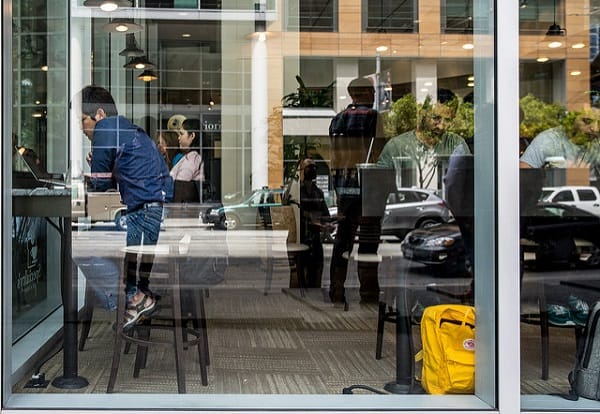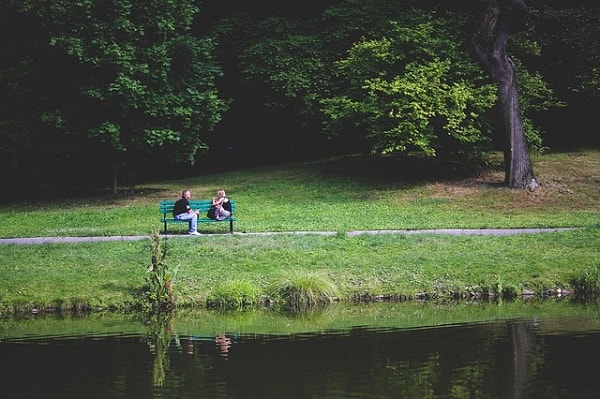Stories are a venue for experimentation and research, they tell about, define, create, and interact with social realities. Therefore they are important to include in analysis, and in order to do so the researcher must be open-minded and confront these stories with a toolkit of methodologies[1].
To me, ethnographic experimentation is being open to including viewpoints and methods from outside of anthropology. By being ‘different’, these allow us to reformulate and reconstruct our own practices as anthropologists. This post is about my work with Syrian refugees and the crisis in Syria[2]. Methodologically I have approached this ‘field’ from the vantage point of narrative theory, with a focus on life-stories. Narrative theory is rich in innovative opportunities for those who are open to these (Raine 2013).
The process of collecting life-stories goes back to the roots of socio-cultural anthropology as a means of describing the culture being studied (Kristmundsdottir 2006). Life-stories not only describe the current situation in which interlocutors find themselves, but they can also provide a verbal description of societies in which these stories have been lived. Thus they provide a narrative other than which the researcher can observe—this is especially useful when studying forced migration and refugees—allowing a researcher to follow a path already walked (Eastmond 2007).

Socio-cultural anthropology has a long tradition of emphasizing the importance of being there, to observe and participate in person. The method of collecting life-stories about other places is part of this tradition. By allowing interlocutors stories to describe not only the milieu they are in now, but also the places where they have been open possibilities for anthropological understandings of social milieus that otherwise would stay closed to our discipline. Thus, the obvious downsides, as not being able to verify things with our own eyes might be less important than the possible gains.
In my research on social online practices during the uprising in Syria, with a focus on Aleppo, I have applied a method of letting life-stories describe the practices played out there. I have collected these stories both through face–to–face interviews with interlocutors in Stockholm, and via online interviews through social media with interlocutors still in Aleppo, Syria.[3] Thus I combine online and offline research methods in a study on online and offline practices—a process that I have found beneficial. I want to elaborate further on this point by providing continuing reflections and proposing some answers to a few questions:
What does online fieldwork do to anthropological research? Are online and offline fieldwork the same, or do the practices differ to such a degree that they must be viewed as different practices? When experimenting with the combination of online and offline, can we achieve the same level of trust as in ‘ordinary’ fieldwork?

Online fieldwork is becoming increasingly common within the social sciences, not least within socio-cultural anthropology. This version of a traditional method has been given many names, such as “Netnography” (Harkin 2013) and “Online Ethnography” (Mairéd and Hill 2015).
These proposed terms seem to imply that online and offline fieldwork are the same. I am not sure they are. I agree that online fieldwork is similar in many ways to its offline counterpart: however, the ways we practice fieldwork are shifting to the extent that we need to be more precise. When researching online we are often listening to, tracking, and observing interlocutors from a distance instead of being at their side ‘experiencing life’ ourselves (Pink et al. 2015).
This notwithstanding, I believe we must view Internet media to be part of the social places their practitioners are part of (Miller and Slater 2000). In our increasingly internet-saturated world online practices are becoming part of the social reality of individuals and must be treated, and studied, as such.
There is a separate point, namely that to conduct fieldwork online allows researchers to connect with individuals from places far away from us, places that it might not be possible to safely enter. One such place is Aleppo in Syria.
By embracing the possibilities that online fieldwork opens up, we might see a change in what kind of situations anthropologists are capable of researching, and what domains that can be opened up to anthropological analysis.
So let me return to the similarities between online and offline fieldwork. Although they are different I argue that both online and offline fieldwork are legitimate research methods and that they are well adapted to be used alongside each other.
Having decided to use online interviews as a method in combination with ordinary offline fieldwork at home to ethnographically describe and analyze the uprising in Syria’s Aleppo I realized that trust would become an issue. I needed to establish rapport with the interlocutors in Sweden who would act as gatekeepers between me and their friends and families remaining in Aleppo. This was no small thing due to the risks involved for my interlocutors still in Syria as well as to the families and friends of those in Sweden—the regime of Al Assad is not known for its lenience towards dissidents. However, I felt that the stories that could be told here in Sweden, by those who had managed to flee the war, were not sufficient to describe current reality in Aleppo. I decided to try to make contact online with people there.
The first time I brought up the idea to my interlocutors in Sweden they were unsure if they had any friends interested in participating. However, after some time a couple of my interlocutors returned to me with an interest in the project, and they had already spoken to friends in Syria who were willing to have an introductory chat. We decided that my ‘becoming’ interlocutors in Syria were to write me with time and date when they would feel safe to either call or chat—it could also be a spontaneous ‘right now’ meeting. We did this through social media: mainly Facebook, both via the call application and the messaging function. My interlocutors in Syria used different accounts most of the time, and they only contacted me via proxy from Internet cafes or similar—never from their own computers or any place that could be connected to their person. Facebook was a very convenient platform due to it being with me all the time in my phone (just as with whatsap and twitter), but it was mainly chosen because Facebook was the main communication tool used by my interlocutors while organising their resistance in Syria.[4] Since it was already common for them to operate via Facebook we decided that this would be the safest, and less complicated platform to meet on.

Much of the organising behind the revolution in Syria has been done online. Internet is also the media used to forward news from the ground in Syria to news agencies around the world. This is done through broadcasting groups on Facebook and other platforms where journalists and activists meet and share information and news. Therefore, I did not keep only to individual interlocutors but wanted to access these information groups as well. All the online groups were closed, and without knowing members previously, I would not have gained access. They have a rigid system of allowing new members to join. Only members that the organisers know in person are allowed to invite new members—who they know in person. Thus, my interlocutors in Sweden proved to be the key to find contacts in Syria—both their friends, but also to get access to these news-groups. The risks involved for those willing to tell their stories are one reason why other researchers have decided not to seek voices from within Syria (Harkin 2013). However, my interlocutors in Sweden believed the risks to be worth it, if it opened up the possibility to speak about and document the atrocities being played out in Syria. People I spoke to in Aleppo agreed on this.
Having arranged for interviews with people from Aleppo, I came to the issue of the trustworthiness of the interview data. In order to make use of an interview, especially when the researcher does not see the interviewee in person, there is a need to accept the story being told. Not in a way as ‘absolute truth’, but as a basis for further inquiries and discussion—this holds true for other forms of interviews as well. Clearly my interlocutors had an agenda in what they told me. The focus of their stories was on the ‘extraordinary’ events, with the more ‘ordinary’ aspects of their lives left aside (Marlove 2010; Rodineliussen 2016). By ordinary I mean, for example, things like social relations with family and friends.
But who would not have an agenda in their situation? In order to ethnographically understand and analyze life in a place like contemporary Aleppo, we need to understand both the ‘extra-ordinary’ and the ‘ordinary’.
This was something that stories from interlocutors in Sweden could help me with. When I compared the stories from interviewees from Aleppo and those from Stockholm I could, among other things, localize issues in need of further answers. These developments provided for more informed questions in follow-up interviews as well as making my own thinking more reflexive.
Those interlocutors within the war-zone were so immersed in the process of living the war that it was all they spoke about. In Sweden, away from bombs and gunshots, my interlocutors were able to remember not only the ‘extra-ordinary’, but also those ‘ordinary’ aspects of life that made up most of their days in Syria. How they met with friends, what they ate for dinner with their families, and things like that. These ‘ordinary’ things fill up the gaps left out when only discussing the ‘extra-ordinary’, allowing the researcher to get a fuller picture of what it was like to live in Aleppo even amid one of the worst and most complicated wars the world has seen since the two world wars.
As mentioned above, I had to establish rapport with my interlocutors in Sweden in order to even get in contact with those in Aleppo. They had to be able to tell their friends that I was somebody they could speak to, that I would listen, and that I would not hand them and their stories to the regime. This trust was gained through time spent with interlocutors as part of participant-observation. Through day-to-day contact I managed to construct a relationship with my interlocutors that led to them granting me this opportunity—participating in and caring for their lives and stories is all part of this.

I could argue that by comparing stories provided by interlocutors in Sweden and those in Syria, I was able to double-check information. I did not treat the version from interlocutors in Sweden as the proof sheet to which the stories of interlocutors in Syria had to adhere. Rather, I compared both versions in order to see in what way they matched, and if not, then I could ask further questions on these topics.
I argue that all stories told are subjective, and possible biased. By highlighting this aspect, making it known to the reader, anthropologists allow these stories to be read in an informed manner. Stories are powerful ethnographic descriptions of subjective worlds and this brings us back to the tradition of life-stories within anthropology. Life-stories have often been viewed as individual lived histories: providing a lived experience and description that can be included in analysis.
A life-story is always personal, subjective, and biased. If we take it as such, it is a very useful medium of social practices, traditions, places, and much more.
Stories are but one forum for ethnographic experimentation, but they are something that brings the social sciences together. Interviews are a common method when investigating human relations and practices, and they create stories. Thus there is much to gain in being open to new ‘takes’ as in how these stories are collected, from which contexts, and to what ends.
References
Eastmond, M. 2007. Stories as Lived Experience: Narratives in Forced Migration Research. Journal of Refugee Studies Vol. 20:2: 248–64.
Harkin 2013, 96. “Is It Possible to Understand the Syrian Revolution through the Prism of Social Media?”. Westminster Papers in Communication and Culture. Vol. 9:2: 93–112.
Kristmundsdottir in Coleman, Simon and Collins (eds). 2006. Locating the Field: Space, Place and Context in Anthropology. Oxford/New York. Berg.
Máiréad N, C, and Hill E. 2015. “Re-locating the Ethnographic Field. From ‘Being There’ to ‘Being There’”. Anthropological Journal of European Cultures. 24(1): 42-63.
Marlove, J, M. 2010, 184. Beyond the Discourse of Trauma: Shifting the Focus on Sudanese Refugees. Journal of Refugee Studies. Vol. 23:2: 183–98.
Miller and Slater. 2000. The Internet: An ethnographic approach. London: Berg.
Pink, Horst, Postill, Hjorth, Lewis, and Tacchi. 2015. Digital Ethnography. Principles and Practice. Sage. Los Angeles.
Raine, S. 2013. The Narrative Turn: Interdisciplinary Methods and Perspectives. Student Anthropologist. Vol. 3:3: 64–80.
Rodineliussen, R. 2016. Anthropologists, Co-Creators of Stories. Student Anthropologist. Vol. 5:1: 46–53.
[1] This post is mainly based on thoughts and material from Rodineliussen (2016) and another article currently undergoing peer-review.
[2] My contact with interlocutors was established during fieldwork for my bachelor thesis in 2015. However, my work continued into 2016.
[3] Rodineliussen (undergoing peer review)
[4] To bee continued in a comming article currently under review. Here I elaborate on the methods used by interlocutors to avoid arrest by the regime. How my interlocutrs organised demonstrations and actions. How they recruited new members, and how news were broadcasted to the world.





